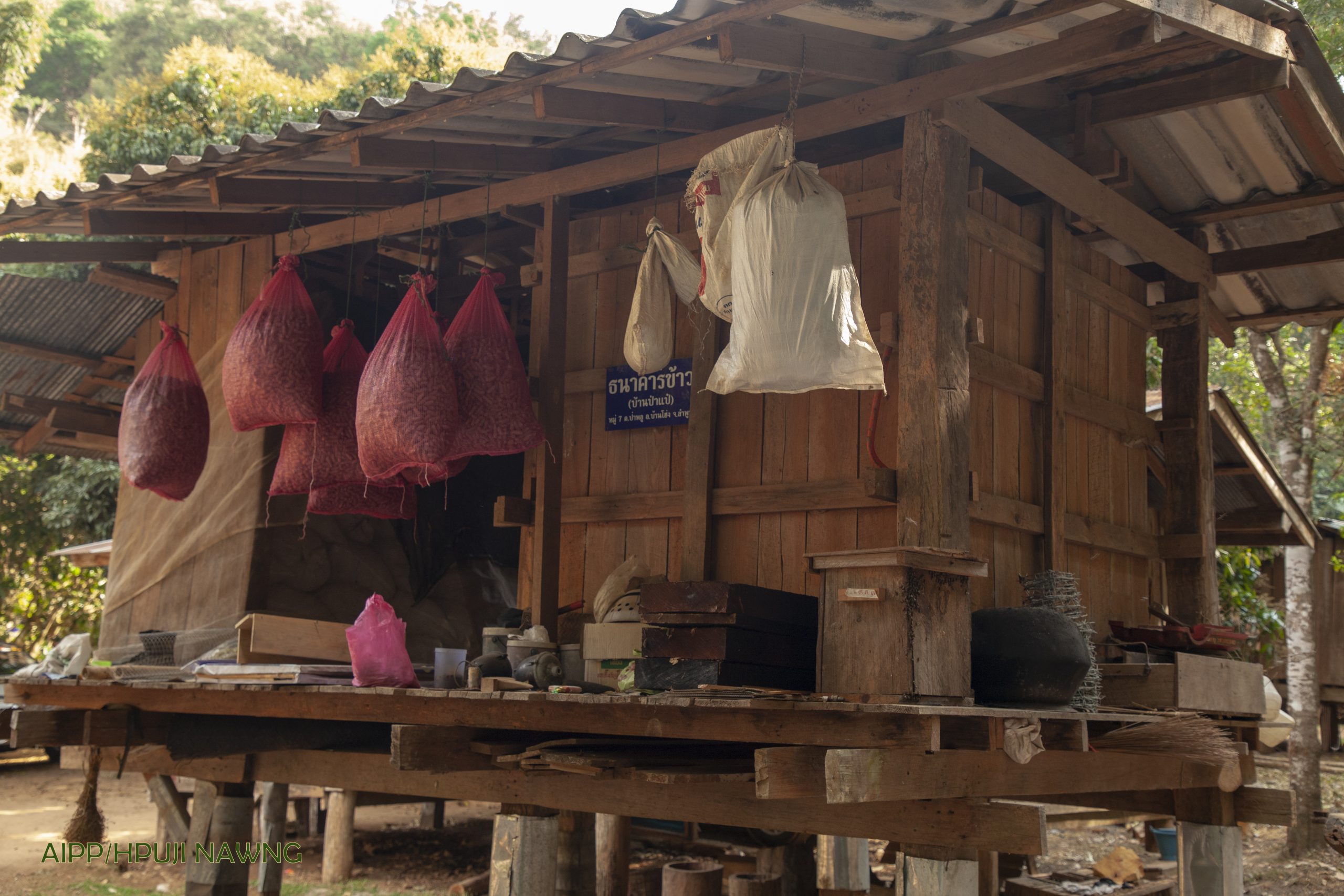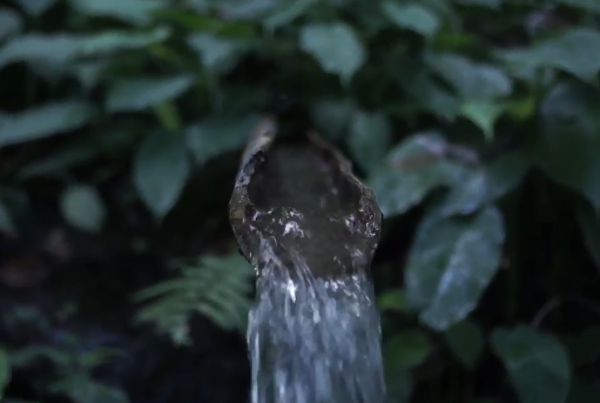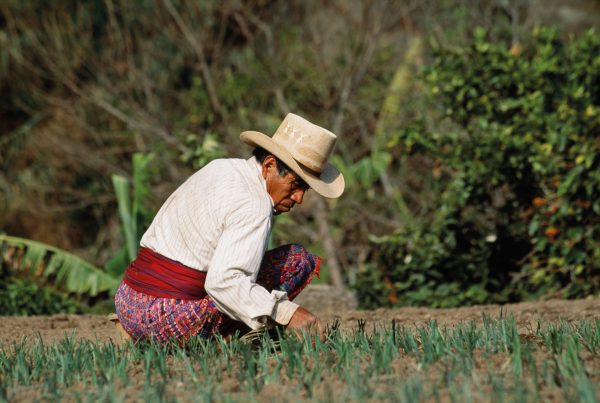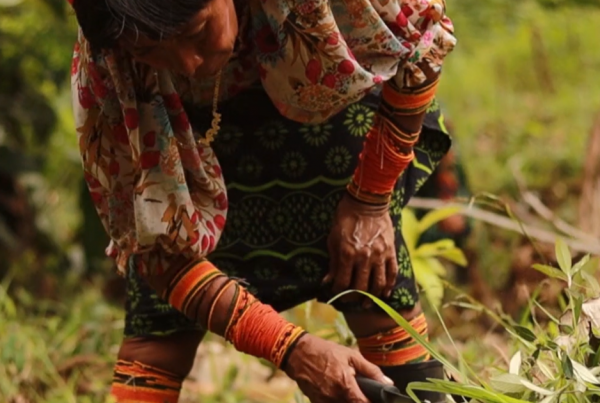The Pgaz K’Nyau (Karen) practice rotational farming as a self-reliant economy for our own food consumption. But today, we also need cash incomes for our expenses in everyday life. PASD works with Pgaz K’Nyau communities on community social enterprise because today young people migrate to work in urban areas. Then the communities lose their young people, leaving a gap between elders and youth. Elders don’t have space to transmit their knowledge to the new generations. The concept of social enterprise is a great tool to sustain and improve the livelihoods of our indigenous people while still preserving cultural identity.
In Hin Lad Nai village, we started to design community social enterprise by young people and they are the owner of this brand. We started to think about how to use NTFPs – for example wild honey, tea, bamboo shoots and adding Pgaz K’Nyau knowledge and wisdom to run this brand.
We believe that our wisdom and traditional knowledge will ensure our brand to be sustainable. Hin Lad Nai branding and marketing of honey products don’t promote their products as better than other brands, but communicate the community story through the tasting of honey combined with how they have taken care of their forest based on their traditional knowledge. The honey created has diverse tastes: each bottle of honey does not have the same taste because these products are based on diverse flowers from the biological diversity in Hin Lad Nai ecosystem. The Hin Lad Nai honey brand, is spreading wide and creating a big impact on wider Thai society. People in the city like not only these good honey products, but also made by people coexisting very well between humans and nature.
Creating more and more added value to the diverse products is motivating young people to come back to their community, to play an important role in innovations and new types of occupation for themselves. They have created opportunities for younger generations willing to return home with hope and security in their futures in their home community.
From the sale of products, part of their income goes to collective fund of the community: 20 baht for one bottle of honey, 20 cents from 1 kilo of tea leaves, etc. From Hid Lad Nai brand products, 30% of profits goes to the community cooperation collective fund. This fund is kept for collective activities , particularly caring and conserving our environment e.g. fire break and fire control in summer time, replanting or increasing local trees and plants for biodiversity, and for urgent needs such as serious cases to go to hospital, education for young people and follow up of government policies.
We try to upscale the Hin Lad Nai honey brand model by sharing with other Pgaz K’Nyau communities. The honey and coffee network has established a new Pgaz K’Nyau brand name linking five Pgaz K’Nyau communities from four provinces. Young leaders from these communities have designed a common plan to promote their new brand, established their governance board and strengthening their network for future sustainability goals of their self-reliant economy.
*A new generation activist and social worker, working to add value to local non-timber forest products (NTFPs) of Hin Lad Nai and other communities as alternative social enterprise.
Hin Nad Lai village, Thailand.
Author
- Nutdanai Trakansuphakon, activist and social worker
Ecosystems
- Tropical forests
Topics
- Food
- Incentives and finance
- Knowledge, culture and spirituality
Type
- Short-form
Date
- This case study forms part of LBO-2, originally released in 2020.



